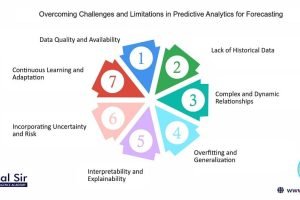Data Ethics and Governance in Analytics: Why It Matters in 2025
- Posted by admin
- Categories Blog, Data Analytics
- Date May 1, 2025
- Comments 0 comment
In the era of big data, organizations are leveraging analytics to drive decisions, optimize operations, and personalize customer experiences. But with great data comes great responsibility. In 2025, data ethics and governance in analytics have become critical concerns for businesses aiming to stay compliant, build trust, and ensure fairness in AI-driven processes.
This blog explores why data ethics and governance matter more than ever, and how you can incorporate them into your data strategy.
What Is Data Ethics?
Data ethics refers to the moral obligations and principles involved in collecting, analyzing, and using data. Key concerns include:
- Privacy: Respecting individual data rights
- Transparency: Being clear about how data is collected and used
- Bias: Minimizing unfair treatment in algorithmic decisions
- Accountability: Holding stakeholders responsible for ethical practices
What Is Data Governance?
Data governance is a structured framework for managing data availability, integrity, security, and usability. It includes:
- Data quality control
- Data ownership and access policies
- Compliance with regulations (e.g., GDPR, CCPA)
- Metadata management
Together, data ethics and governance ensure that analytics are not only powerful but principled.
Why Are Ethics and Governance Crucial in 2025?
1. Trust and Transparency
With increased public concern over data misuse, businesses must prioritize transparency to build trust. Ethical analytics practices promote customer loyalty and brand reputation.
2. Legal Compliance
Governments continue to tighten data protection laws. Proper governance helps ensure compliance and avoid costly fines.
3. AI and Algorithmic Bias
As more decisions are driven by machine learning, ensuring unbiased data inputs and transparent algorithms is essential.
4. Data Security
Strong governance frameworks help protect against cyber threats and unauthorized access.
Best Practices for Implementing Ethical Data Governance
- Establish Clear Data Policies: Document how data should be collected, stored, and used.
- Involve Diverse Teams: Prevent biases by involving stakeholders from varied backgrounds.
- Audit and Monitor: Regularly review analytics processes for ethical compliance.
- Train Employees: Educate teams about ethical considerations in data analytics.
Tools That Support Ethical Data Governance
Some modern platforms include built-in governance and compliance features:
These tools aid in cataloging, securing, and auditing data practices.
The Future Outlook
In 2025 and beyond, ethical governance will become a competitive advantage. Customers and regulators alike will scrutinize how companies collect and handle data. Companies that prioritize ethical data practices will not only stay compliant but also stand out as leaders in responsible analyt




